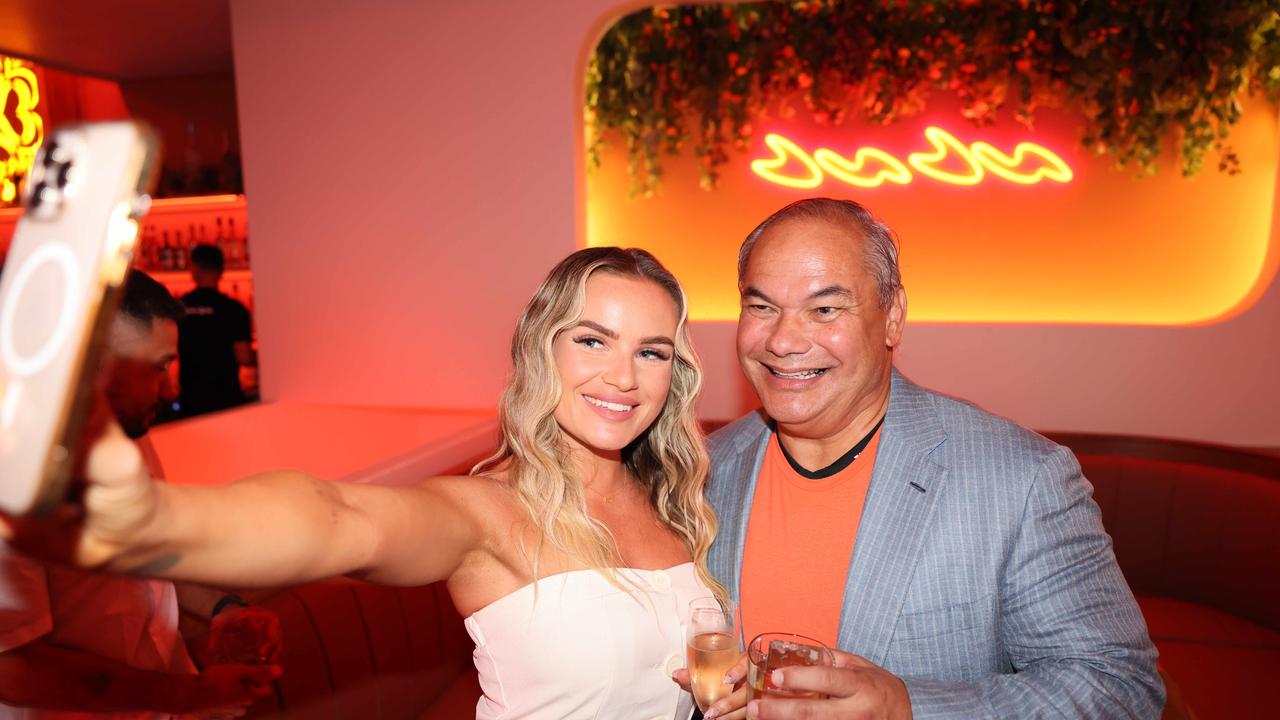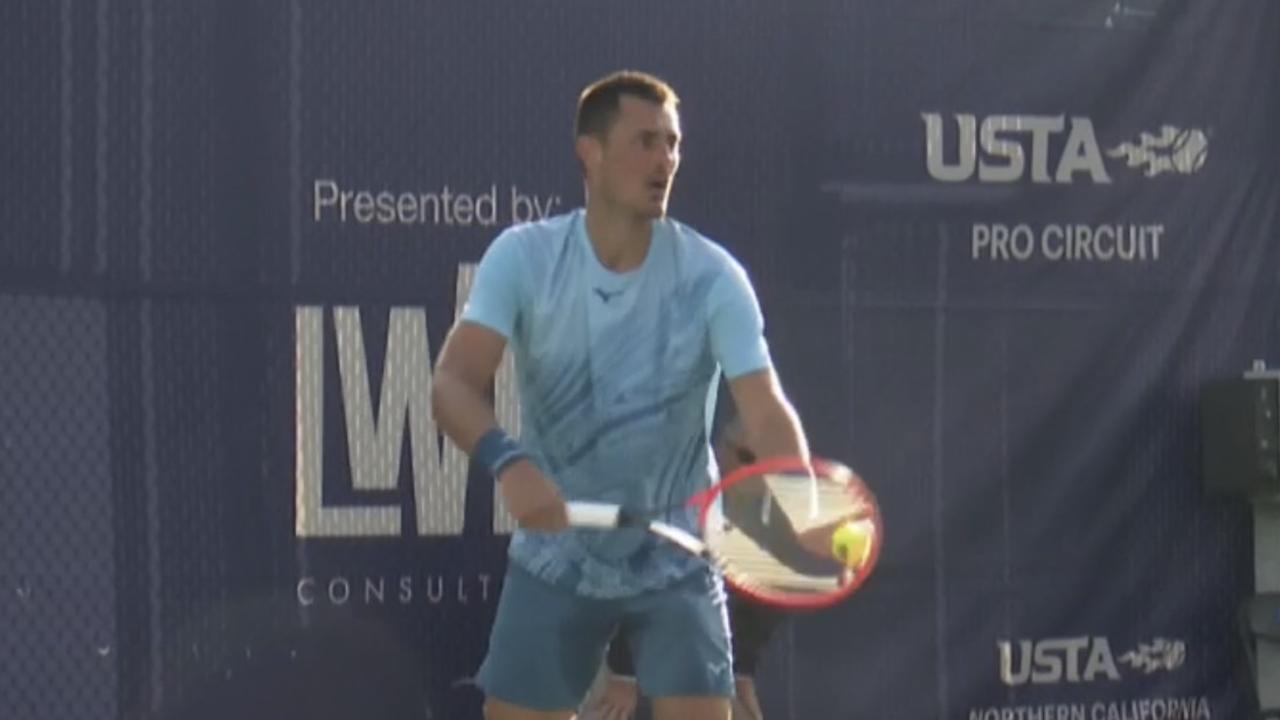Russia-Ukraine war: Mum’s incredible escape to safety on Gold Coast
Maxim is nine months old. He likes crawling and playing. Just one month ago, he was in the firing line of men who would just as soon have seen him dead. This is his family’s story.
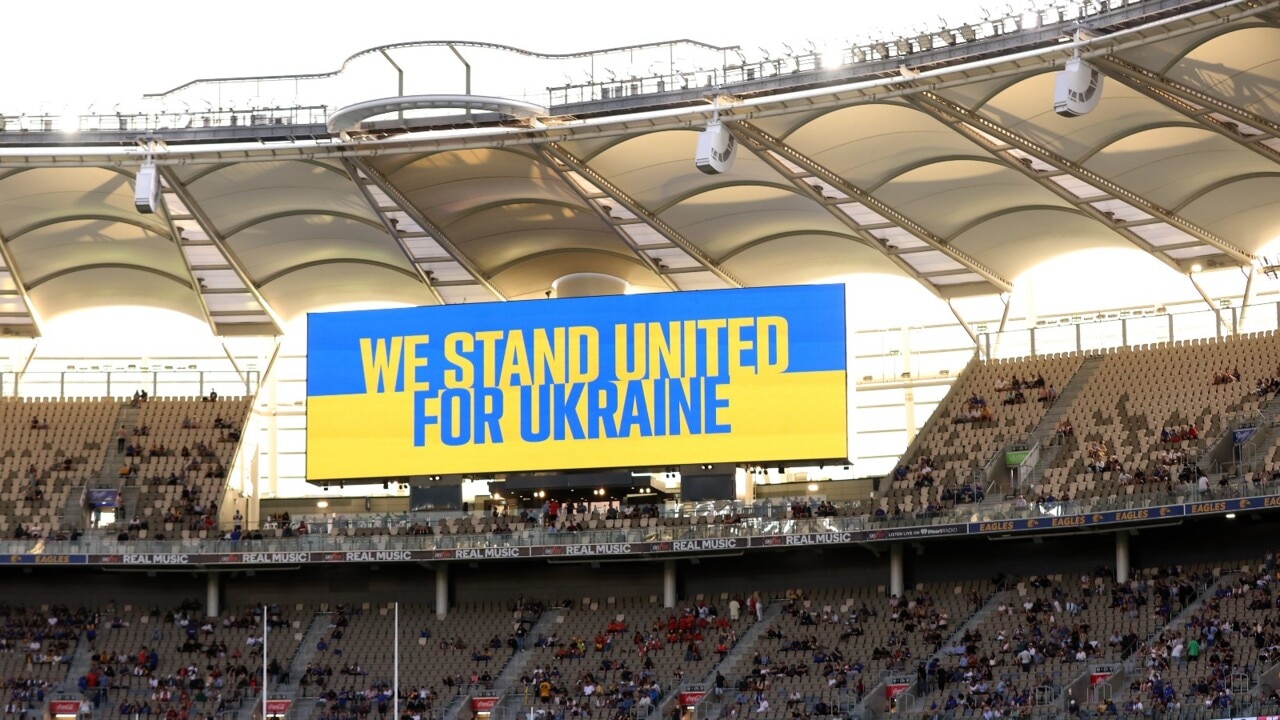
Gold Coast
Don't miss out on the headlines from Gold Coast. Followed categories will be added to My News.
The young boy gurgles and aahs. His smile is wide as his eyes.
With helping hands he takes faltering steps.
He grips and shakes colourful playthings, putting some in his mouth, casting others aside.
He is the smallest member of his extended family, but the one that grabs all the attention. His young cousins, entranced, jostle for his affections.
It’s incredible to know that not so long ago this happy, contented baby, playing on the toy-strewn floor of a Bundall home, had a target on his back.
That there are men who would, without a care in the world, shoot nine-month-old Maxim dead.
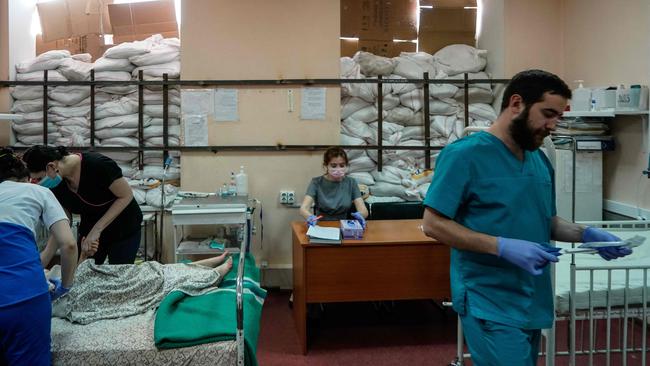
SHOOTING AT CHILDREN
Five weeks ago, Maxim was playing in another family home. His real home. Where mum Iryna and dad Vadik had, like any excited first-time parents, decked out a nursery.
His home in Kyiv. A home he may never see again.
“Everything they have, they left behind,” Iryna’s sister Nataliya says.
“She has all the new stuff in the nursery, all left behind.
“I just sent her a big parcel with baby toys and clothes. She loves Bonds, all the onesies. And I sent a big box.
“She had just got it and the war started the week after.”
They left as soon as the bombs started falling. It was a wise decision.
Devastating proof comes every time Iryna or Nataliya have the strength to read the messages, the harrowing social media posts, being sent from friends and family back home. Children are dying. Children like Maxim.
“Everywhere we are seeing on the social media, the Russian army think they can do whatever they want to do to normal, civilian people,” Nataliya says. “There are rapes, there are burglaries.
“They see the civilians trying to go in the car, there will be a white flag and a big sign saying there is children, but they will still shoot the car. They will blow up the car. They think it’s fun.”
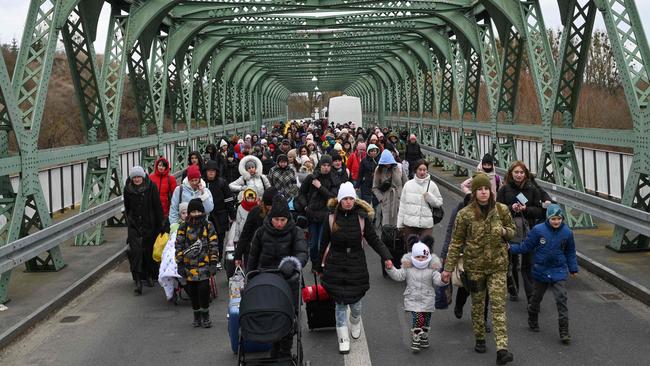
IN THE NICK OF TIME
Escape isn’t easy. You need a lot of help. A lot of luck. A lot to go right.
If the Russian invasion of Ukraine had begun 48 hours earlier, Iryna and Maxim might still be in Kyiv.
In the weeks leading up to that fateful moment, Nataliya, from her home on the Gold Coast, had become increasingly fearful.
She read the news. She learned about the Russian troop build-up. She wanted her sister to get out.
“When I talked to her I said, ‘Why would you not renew your passports and come for a holiday’,” Nataliya recalls.
“And she said: ‘It’s very far away to come by myself, a very long flight’.”
Eventually she convinced her. Iryna and Maxim’s passports were delivered on February 22. The tanks started rolling two days later.
Those precious documents were among the few things Iryna was able to take with her.
When she finally made it across the border into Poland 10 days later, after a gruelling journey, all she had was a small sports bag. And Maxim. Precious Maxim. Who she never let go of once.
“She didn’t have socks, underwear, nappies, nothing,” Nataliya says. “She’d just been carrying him all the time.
“Someone bought her a stroller in Warsaw because she couldn’t carry Max any more. She said ‘I can’t feel my arms’. She’d been carrying him for so long.
“She said ‘I couldn’t go to the toilet, and put him on the floor’.
“The women, what they have to go through, is just heartbreaking. All of them have children. They don’t have food.
“Everything they have, they left behind.”
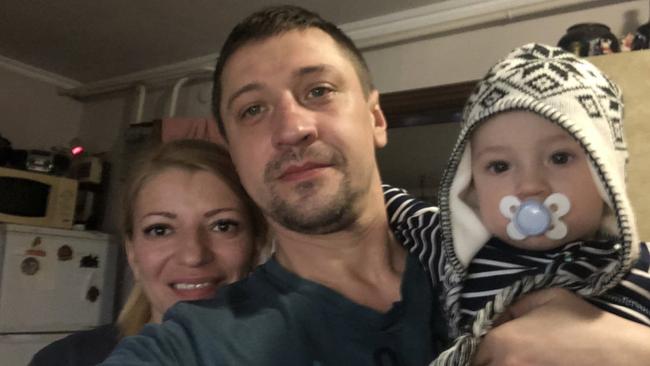
THE HARDEST GOODBYE
Of the three-and-a-half-million people to have fled Ukraine, almost all are women and children.
The men can’t leave. They stay to fight.
For Iryna, the hardest thing was not leaving behind her beautiful Kyiv home. Not her car. Or the nursery. Not any of those material things she had worked so hard for.
The toughest thing by far was saying goodbye to her husband, and Maxim’s dad, Vadik.
They talk on the phone. They’re not easy calls.
“He’s in Kyiv and he said it’s becoming very more often loud with Grads, these big explosions,” Nataliya says.
“He’s lost a lot of weight. He’s very skinny now. It’s stress, he’s very stressed.”
Nataliya’s husband Jason flew to Warsaw to help Iryna and Maxim make their way to Australia.
He witnessed the despair of thousands. He heard their stories. But it was a moment, back on the Gold Coast, that hit home hardest.
“This morning Nataliya said, ‘do you remember this watch?’,” Jason says.
“When Vadik visited me 10 years ago in New Zealand I gave him a very nice watch as a birthday gift. And he’s given that to his son and said, ‘this is for you to remember me by’. His idea is, ‘I don’t know if I’ll ever see you again’.”
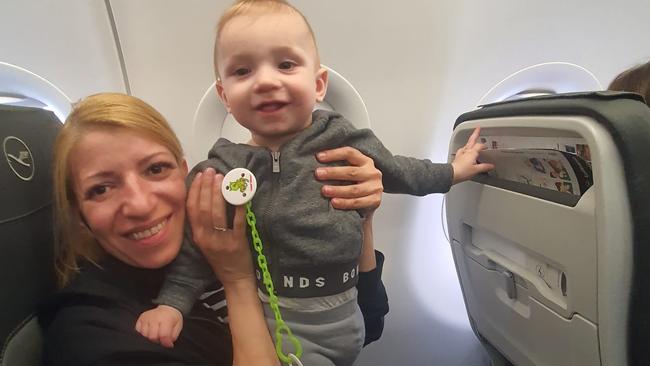
WOUNDS THAT WON’T EASILY HEAL
Iryna and Maxim, at least, are safe.
They have the support of a caring family, and a community eager to help.
A friend of theirs, Dr Tim Hong, stops by while we are talking. He’s a neonatologist at Gold Coast University Hospital. He’s on his way home from a shift, but calls in to give Maxim a check-up.
Clothes, toys, furniture and thousands of dollars have also been donated to help Iryna and Maxim make a new start in Australia.
The support, the goodwill, is invaluable. But there are things the Gold Coast community cannot easily fix.
“Iryna’s really happy that she’s safe, and Max is safe, but she’s also really sad,” Jason says.
“She said yesterday, she’s got a feeling of guilt, because of Vadik, his parents, because she left her dog, her labrador behind. She left friends who were unfortunate, who didn’t have the means or didn’t have passports to get out. So now she’s got that guilt going on.”
Adam Miljenovic, from the Ukrainian Community of Queensland, says Iryna is not alone. Most people who have made it to safety in Australia must deal with the same trauma, the same emotions.
“There’s a lot of survivor’s guilt that needs to be processed,” he says.
“It’s the most common issue.”
There are other challenges, too. Iryna needs to learn English. Find a job. Care for Maxim.
To build, for her son, from an abnormal horror, a normal life.
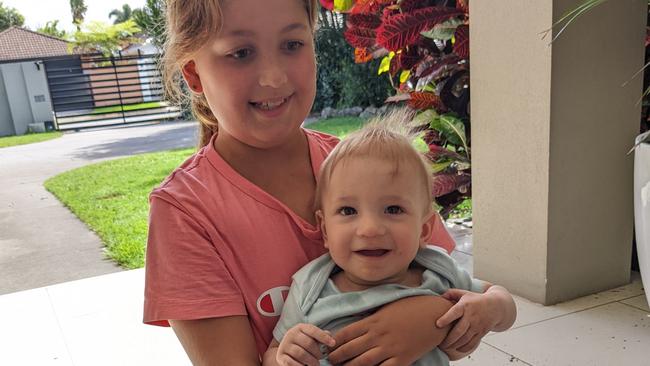
HELP THAT’S REALLY NEEDED
More than 5000 visas have so far been issued to displaced people from Ukraine to come to Australia. They will all carry the same burdens.
Stefan Romaniv is co-chairman of the Australian Federation of Ukrainian Organisations.
He is keenly aware of what needs to happen next.
“If they’ve lived through some of the bombings, there’s no doubt they’ll need some counselling. It’s been a traumatic experience, especially for children,” he says. “Thirty-eight per cent of the people that are coming here are children.
“They’ve been displaced and are probably wondering what’s happening, so we’re working with government to ensure that wherever they are they’ll get that support in terms of counselling and so on.”
Stefan says there have been many offers of help. Almost a thousand Australians have put forward accommodation. Businesses have offered help finding jobs. Many more have donated cash.
But for Ukrainians, proud, independent, educated, it’s not about hand-outs.
“It’s not just about cash in hand,” Stefan says. “What we want to be able to do as a community, we want to be able to set up a set of life skills.
“It’s a bit like that fishing story. You give people a fishing rod and teach them to fish, you don’t just give them the fish.”
Already, the group is helping to organise swimming lessons, driving lessons, training sessions about how employment here works.
The basic building blocks of life in Australia.
Stefan calls it “joining the dots”.
“Our general message is we want people to feel wanted, we want them to feel the warmth of the community, but we also want them to understand that we can help them in this passage of their lives with real-life support.”
Adam Miljenovic says those supports are essential. That the future of children like Maxim depends on what happens now.
“It’s important to ensure that everyone gets early enough intervention in terms of psychological counselling, skills recognition and education et cetera that they are able to heal and thrive, not deal and survive.
“... My mother’s parents (refugees from the second World War) and their generation were left to their own defences, and you end up with intergenerational trauma, maladapted coping strategies.
“I want these children to be able to survive. They potentially will never see their fathers again. They may not be able to go home. There’s a big cloud of uncertainty.”
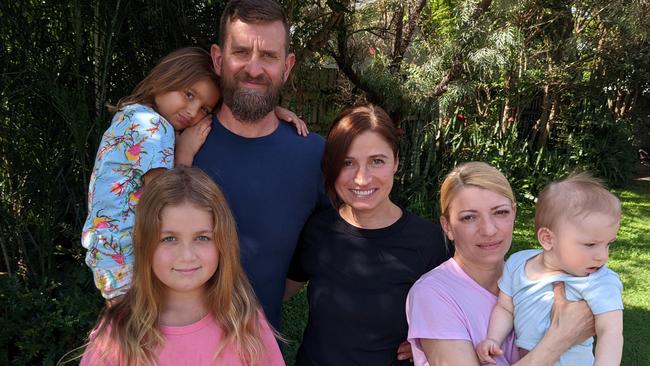
POWER OF THE COSSACK
Maxim, just nine months old, has no idea about any of this.
About the challenges his doting mother faces. About what she has just been through.
About what his father still endures. The horrors inflicted on the people of Ukraine. The murder of children just as small, and innocent, as him.
He has no idea how lucky he is to be in Australia. That he will soon see a beach for the first time and feel sand between his toes.
Though in the shimmer of his eye, in his contended oohs and aahs, you know he feels the safety, the deep embrace, of his adopted home.
Dr Hong has just given him a Covid test. He didn’t even flinch.
“He is such a happy little boy,” Nataliya says. “Always smiles, never cries.”
“He just had the Covid test and he didn’t even cry.”
Iryna has a word for it. “Cossack,” she says. “He Cossack”.
Like Japanese Samurai, the Cossack in Ukraine is a byword for resilience and strength.
It represents the spirit of this proud nation.
Spirit that is seen every day in the streets of Kharkiv, in Irpin, in Mariupol, in Kyiv.
In the mothers doing what it takes to get their children to safety.
And seen, in the eyes of a nine-month-old, playing, gurgling, smiling, on the toy-strewn floor of a family home in Bundall.
More Coverage
Originally published as Russia-Ukraine war: Mum’s incredible escape to safety on Gold Coast




